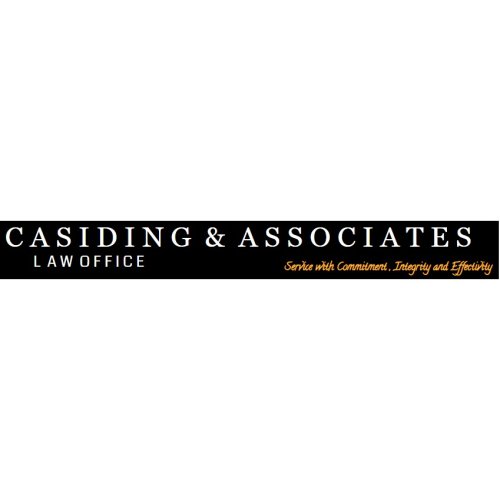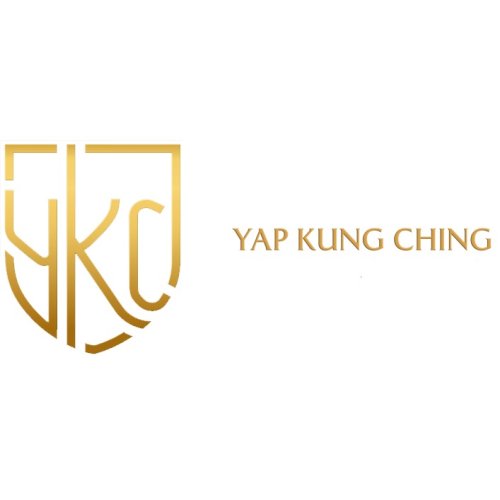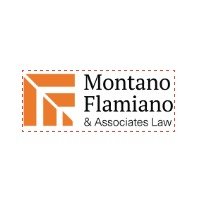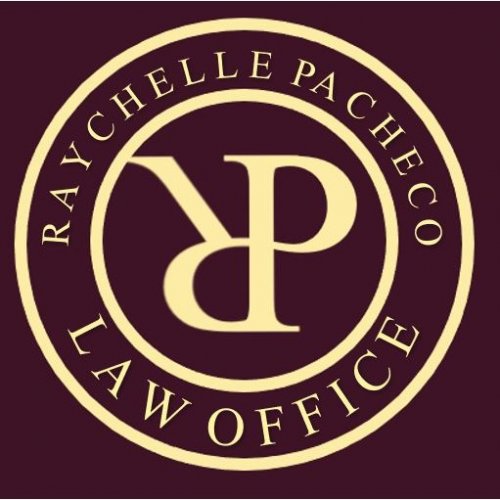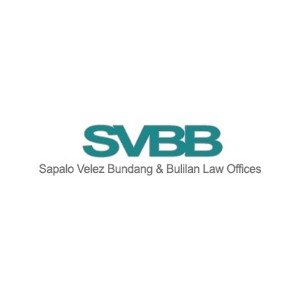Best Sanctions & Export Controls Lawyers in Makati City
Share your needs with us, get contacted by law firms.
Free. Takes 2 min.
List of the best lawyers in Makati City, Philippines
About Sanctions & Export Controls Law in Makati City, Philippines
Sanctions and export controls are legal measures imposed by national and international authorities to regulate the transfer of goods, technologies, and services across borders. In Makati City, a central business district and financial hub of the Philippines, these laws have become especially significant due to the city’s international business operations and presence of multinational corporations.
Philippine regulations on sanctions and export controls primarily aim to comply with United Nations Security Council resolutions, to prevent illegal proliferation of arms and dual-use goods, money laundering, terrorism financing, and to ensure the country’s commitments under international treaties. Local implementation often involves coordination between the Department of Trade and Industry (DTI), Bangko Sentral ng Pilipinas (BSP), and other regulatory agencies, making compliance particularly relevant for businesses and individuals operating in Makati City.
Why You May Need a Lawyer
Sanctions and export controls regulations are highly complex and can have severe consequences for non-compliance, including heavy fines, business restrictions, and even criminal liability. You may need a lawyer in Makati City in the following situations:
- You operate a business engaged in international trade, export, or import of goods and technologies.
- You have been notified of a possible violation of Philippine sanctions or export control laws.
- Your company is subject to an audit or investigation by regulatory authorities like the DTI or BSP.
- You need to navigate multi-jurisdictional compliance due to business operations in other countries with their own sanctions and export regulations.
- You are dealing with transactions or clients that may be listed in international or domestic sanctions lists.
- You are unsure whether your products or services require export licenses or are subject to restrictions.
- You need to develop internal compliance programs or require training for your staff.
- You face business disruptions or banking issues related to frozen assets or restricted payments.
An experienced lawyer can help you interpret the law, apply for required permits, defend against allegations of non-compliance, and protect your business interests.
Local Laws Overview
Sanctions and export controls in the Philippines are governed by a mix of local statutes, international treaties, and regulations from various government agencies. Some key aspects relevant to Makati City include:
- Strategic Trade Management Act (STMA) - Republic Act No. 10697 governs the regulation of the export, import, transit, and transshipment of strategic goods and related items. The law aims to prevent proliferation of weapons of mass destruction.
- Money Laundering and Terrorist Financing Prevention - The Anti-Money Laundering Council (AMLC) enforces rules to prevent financing of terrorism and ensure compliance with international financial sanctions.
- Customs and Import/Export Regulations - The Bureau of Customs oversees the legal import and export of regulated commodities and checks for violations of sanctions and export restrictions.
- Central Bank (BSP) Rules - BSP governs foreign exchange transactions which can be restricted under certain sanctions requirements.
- International Sanctions - Philippines complies with United Nations Security Council sanctions, including asset freezes, travel bans, and arms embargoes against targeted individuals, companies, or countries.
- Licensing - Exporters may need to secure specific licenses from the Strategic Trade Management Office (STMO) or other regulators depending on the classification of goods or end-use concerns.
Firms and individuals in Makati must ensure compliance with these layered regulations, especially where multinational transactions are involved.
Frequently Asked Questions
What are sanctions and export controls?
Sanctions refer to legal restrictions, such as asset freezes or trade bans, imposed on certain countries, individuals, or organizations. Export controls are legal frameworks that regulate the movement of sensitive goods, technology, and services across borders.
Who regulates export controls in Makati City?
The Strategic Trade Management Office (STMO) under the Department of Trade and Industry is the main regulatory body. Other agencies like the Bureau of Customs, BSP, and AMLC also play key roles.
Does my business need to comply with export controls if we only deal with local clients?
Even if your clients are local, if your goods, technologies, or services can be transferred to a foreign entity or are considered dual-use, you may still be subject to export control regulations.
What are strategic goods?
Strategic goods are products, software, or technology that can be used for both civilian and military applications, including weapons, chemical or biological items, and sensitive information or technology.
Are there penalties for violating export control laws?
Yes, violations can result in administrative fines, civil penalties, criminal charges, imprisonment, business license revocation, and reputational damage.
How do I know if my company or business partners are subject to sanctions?
You can consult official government lists, such as those under the United Nations, as well as lists maintained by the Philippine government. Legal counsel can help you with screening and due diligence.
What is a 'red flag' for export control violations?
Red flags include unusual payment terms, reluctance by clients to provide end-user information, requests for shipment to suspicious locations, or intermediaries with unclear business roles.
Can I apply for a license to export controlled goods?
Yes, you may apply for an export license with the STMO. The process involves submitting documents, undergoing review, and sometimes additional government clearances.
Is it possible to challenge a sanctions listing or enforcement action?
Yes, you may challenge such listings or actions through administrative review or legal proceedings, often with the assistance of a lawyer who can guide you on the best approach.
What should a company in Makati do to ensure compliance?
Develop internal compliance programs, regularly screen transactions and business partners against sanctions lists, train employees, and consult legal experts for up-to-date guidance and risk assessments.
Additional Resources
To further guide you, here are some helpful Philippine governmental bodies and organizations involved with sanctions and export controls:
- Strategic Trade Management Office (STMO) - Processes export licenses and provides regulatory guidance.
- Department of Trade and Industry (DTI) - Implements trade and industry regulations, including export controls.
- Bureau of Customs (BOC) - Oversees border checks and compliance with import-export regulations.
- BSP (Bangko Sentral ng Pilipinas) - Regulates foreign currency transactions and financial sanctions.
- Anti-Money Laundering Council (AMLC) - Monitors compliance with anti-money laundering laws that relate to financial sanctions.
- Philippine Exporters Confederation, Inc. (PHILEXPORT) - Offers resources and advocacy for exporters.
Next Steps
If you believe your business or personal activities may be affected by sanctions or export controls in Makati City, consider the following steps:
- Assess your products, services, and customers for possible risks or restrictions under current sanctions and export control laws.
- Consult with a lawyer or legal team specializing in trade compliance, international law, or sanctions regulation.
- Reach out to government agencies such as the STMO or DTI for initial guidance and clarification of licensing requirements.
- Develop or update your internal compliance policies and train relevant staff members.
- Maintain clear and complete documentation to demonstrate compliance in case of an audit or investigation.
- Should you receive notice of any alleged violation, act quickly and seek legal advice to best manage the response and protect your interests.
Navigating sanctions and export controls is crucial to avoid penalties and maintain smooth business operations, especially in a globally connected business environment like Makati City.
Lawzana helps you find the best lawyers and law firms in Makati City through a curated and pre-screened list of qualified legal professionals. Our platform offers rankings and detailed profiles of attorneys and law firms, allowing you to compare based on practice areas, including Sanctions & Export Controls, experience, and client feedback.
Each profile includes a description of the firm's areas of practice, client reviews, team members and partners, year of establishment, spoken languages, office locations, contact information, social media presence, and any published articles or resources. Most firms on our platform speak English and are experienced in both local and international legal matters.
Get a quote from top-rated law firms in Makati City, Philippines — quickly, securely, and without unnecessary hassle.
Disclaimer:
The information provided on this page is for general informational purposes only and does not constitute legal advice. While we strive to ensure the accuracy and relevance of the content, legal information may change over time, and interpretations of the law can vary. You should always consult with a qualified legal professional for advice specific to your situation.
We disclaim all liability for actions taken or not taken based on the content of this page. If you believe any information is incorrect or outdated, please contact us, and we will review and update it where appropriate.






